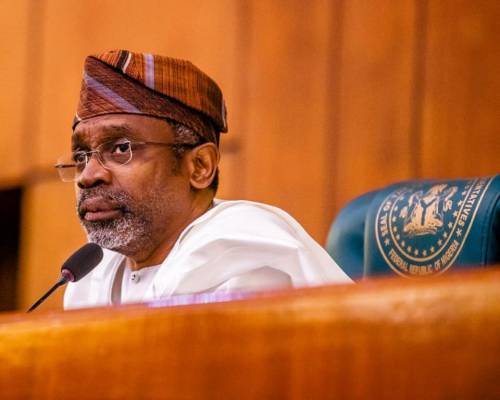Chairman Heirs Holdings, Tony Elumelu has adduced reasons why most Nigerians find it difficult to make right choice on insurance purchase.
Elumelu disclosed this in his Chairman’s Keynote Remarks for the Nigerian Council of Registered Insurance Brokers (NCRIB) 60th Anniversary.
The theme of the anniversary is ’60 Years of Insurance Broking: Redefining the Practice and the Practitioners’.
He explained that: ” Through insurance, large volumes of fund are mobilised by way of premiums for investments, spurring the growth and development of the economy.
“With insurance, families receive financial security, assets are protected against hazards, and businesses continue to run with the assurance of financial compensation in the event of a loss.
“In a nutshell, insurance keeps families and their possessions intact, provides financial safeguards for businesses, creates employment, and generally advances the economy.
“An economy is therefore as advanced as its insurance sector.
“More importantly, in an economy going through inflation and a widening poverty gap, insurance is more important now than ever.
“That is why we decided to introduce smart, simple insurance to the Nigerian market to better service this underserved market.
NCRIB’s Contributions
“As insurance is very important to the economy, so also is the quality of governance, institutions, and practitioners of the sector
“Insurance is recognised as a technical business that requires special expertise.
“This therefore makes it difficult for most people to make the right choice on insurance purchase. They also require professional assistance when claims occur.
“This is why the expertise of an insurance broker is crucial.
“The insurance broker is an intermediary between the insurance consumer and an insurance company.
“The insurance broker is a professional. He represents the interests of insurance consumers and provides them with expert advice, guidance, and support on insurance matters.
“The Nigerian Council of Registered Insurance Brokers (NRIB) serves as a central organisation for the regulation of all practicing insurance brokers in Nigeria.
“Members of NCRIB have, over the years, facilitated insurance businesses in hundreds of billions of naira, delighted millions of Nigerians with their professional insurance services, and ensured that claims are duly settled.
Redefining the Practice and the Practitioners:
“Notwithstanding the great achievements so far recorded, NCRIB still has a lot to offer to its members and the Nigerian insurance industry as a whole.
“There is always room for improvement
We must strive to achieve the highest levels of professionalism and dedication to delivering excellent service to the public who rely on us to provide them with comfort
In the area of Governance :
“We as an industry need to enforce strict adherence to corporate governance by all NCRIB members.
“The need for the body to weed out non-registered and non-compliant members from its fold.
“These are the ones tarnishing the image of the broking profession and the industry at large.
“An insurance broker must be professional at all times.
“In redefining the practice and practitioners in the broking profession, NCRIB should lead the war against many of the unethical practices that have been the bane of the industry for years.
“These include premium rate cutting, delayed premium remittance, unremitted premium, overloading of premium, returned premium, fake documents, fraudulent claims, collusion to defraud, mis-selling, unhealthy competition, misrepresentations, manipulation of policy conditions, self-enrichment methods disguised as marketing expenses, and many more.
“While NAICOM continues to play its role as the industry regulator, NCRIB as a body must ensure that appropriate sanctions are imposed on any of its members found using unethical practices
We must push for more Industry Collaboration:
“The NCRIB and other insurance industry bodies should collaborate more to deepen insurance penetration in Nigeria.
“Where there are differences on issues, such must be resolved as friends and colleagues to protect and preserve the image of the industry.
“The body should also play a key role in government advocacy for pro-insurance laws and policies.
Mr. Rotimi Akeredolu, SAN, Executive Governor of Ondo State was chairman of the occasion , while Mr, Babajide Sanwo-Olu, Executive Governor of Lagos State was the guest of honor and other critical stakeholders were in attendance.
Read full address below:
REMARKS
Good morning All,
Our Chief Host, Mr. Babajide Sanwo-Olu, Executive Governor of Lagos State
The Chairman of the Occasion, Mr. Rotimi Akeredolu SAN, Executive Governor of Ondo State
The Commissioner for Insurance, Mr. Sunday Thomas
The President & Chairman of the Governing Board of the Nigerian Council of Registered Insurance Brokers, Mr. Rotimi Edu
Insurance practitioners present here today
And all distinguished guests present here
Members of the media
Let me start by congratulating the Nigerian Council of Registered Insurance Brokers on its 60th Anniversary
And for organising this most befitting event to mark the milestone
I stand before you today as the Chairman of Heirs Holdings, my family-owned investment management company with investments in the strategic sectors of the African economy, including financial services, hospitality, power, energy, technology, and healthcare.
You may know me more for my banking career as the Chairman of the United Bank for Africa (UBA) Africa’s global bank present in 20 African countries including France, USA, UK, and the UAE
And the catalytic work we do at the Tony Elumelu Foundation in empowering young Africans across the 54 countries on the continent
So far, over 15,000 young African entrepreneurs have benefitted directly from the Foundation through the provision of a $5,000 non-refundable seed capital, alongside business training, mentorship, and market access to these young African entrepreneurs.
At the Heirs Holdings Group we are committed to improving lives and transforming the continent
This is why last year we entered the insurance sector with the introduction of Heirs Life Assurance and Heirs Insurance Limited
Insurance companies committed to providing simpler and smarter insurance to the market
These 2 companies complement Heirs Insurance Brokers (HIB), our insurance brokerage business and these 3 companies allow us to exploit synergies and efficiently service the Nigerian insurance market
Why have we focused on the Insurance sector?
The importance of insurance
We all understand the pivotal role Insurance plays in any society.
It provides the much-needed safety and security.
Through insurance, large volumes of fund are mobilised by way of premiums for investments, spurring the growth and development of the economy.
With insurance, families receive financial security, assets are protected against hazards, and businesses continue to run with the assurance of financial compensation in the event of a loss.
In a nutshell, insurance keeps families and their possessions intact, provides financial safeguards for businesses, creates employment, and generally advances the economy.
An economy is therefore as advanced as its insurance sector.
More importantly, in an economy going through inflation and a widening poverty gap, insurance is more important now than ever.
That is why we decided to introduce smart, simple insurance to the Nigerian market to better service this underserved market
NCRIB’s Contributions
As insurance is very important to the economy, so also is the quality of governance, institutions, and practitioners of the sector
Insurance is recognised as a technical business that requires special expertise.
This therefore makes it difficult for most people to make the right choice on insurance purchase. They also require professional assistance when claims occur.
This is why the expertise of an insurance broker is crucial.
The insurance broker is an intermediary between the insurance consumer and an insurance company.
The insurance broker is a professional. He represents the interests of insurance consumers and provides them with expert advice, guidance, and support on insurance matters.
The Nigerian Council of Registered Insurance Brokers (NRIB) serves as a central organisation for the regulation of all practicing insurance brokers in Nigeria.
Members of NCRIB have, over the years, facilitated insurance businesses in hundreds of billions of naira, delighted millions of Nigerians with their professional insurance services, and ensured that claims are duly settled.
Redefining the Practice and the Practitioners
Notwithstanding the great achievements so far recorded, NCRIB still has a lot to offer to its members and the Nigerian insurance industry as a whole.
There is always room for improvement
We must strive to achieve the highest levels of professionalism and dedication to delivering excellent service to the public who rely on us to provide them with comfort
In the area of Governance
We as an industry need to enforce strict adherence to corporate governance by all NCRIB members.
The need for the body to weed out non-registered and non-compliant members from its fold.
These are the ones tarnishing the image of the broking profession and the industry at large.
An insurance broker must be professional at all times.
In redefining the practice and practitioners in the broking profession, NCRIB should lead the war against many of the unethical practices that have been the bane of the industry for years.
These include premium rate cutting, delayed premium remittance, unremitted premium, overloading of premium, returned premium, fake documents, fraudulent claims, collusion to defraud, mis-selling, unhealthy competition, misrepresentations, manipulation of policy conditions, self-enrichment methods disguised as marketing expenses, and many more.
While NAICOM continues to play its role as the industry regulator, NCRIB as a body must ensure that appropriate sanctions are imposed on any of its members found using unethical practices
We must push for more Industry Collaboration
The NCRIB and other insurance industry bodies should collaborate more to deepen insurance penetration in Nigeria.
Where there are differences on issues, such must be resolved as friends and colleagues to protect and preserve the image of the industry.
The body should also play a key role in government advocacy for pro-insurance laws and policies.
Innovation
The insurance industry can benefit from innovation across all phases of the service. For this to happen, there is the need to reward and incentivise innovation across the industry.
The industry must also benchmark against global trends.
Perhaps the starting point for innovation in the broking arm of the industry is retail insurance development.
Over the years, brokers in the market have been recognised as corporate insurance specialists.
It is high time the brokers community began to shift focus to retail because this is where the future of insurance lies in Nigeria. Brokers have the capacity to lead in this area.
Ladies and gentlemen, innovation and disruptive practices cannot occur if we do not broaden our thinking
Trying to make profits from existing lines is not going to deepen insurance penetration, rather we must look at the blue ocean opportunities
This is something I task the management of the insurance companies to constantly think of in product development and deployment
We must create Awareness
There is a need to generate more awareness and showcase the value of insurance to the public, promoting participation, most especially in the retail space.
We must bridge the insurance knowledge gap if we are to make insurance attractive to Nigerians
Insurance brokers need to participate fully in this drive as they stand to benefit from the initiative like other players in the market.
In the area of Technology
To remain relevant in the modern business arena, the insurance broker community and, by extension, the entire Nigerian insurance industry, must embrace technology fully.
The body also needs to work towards positioning its members properly for digital integration, mediating between the insuring public and the underwriters digitally.
Embrace technology and digital adoption, current analogue processes need to be eliminated to improve service delivery to our customers
The brokers industry cannot advance when the other financial services are transitioning to online real time and we are still stuck with a system that relies on hard copy files and documents
The brokerage sector needs to drive clean data for the industry. This is not a one person job
Recapitalisation of the brokerage sector
We need to recapitalise the brokerage industry in our country, N5 million is not enough capital base for an industry. A recommend a minimum of N50 million as a capital base
We need to adequately capitalise the brokerage sector
The Next Generation
There is also the urgency to develop the next generation of talent to serve the Nigerian insurance industry.
The broker community should rally and become the hub for the education and training of our youths to get qualified talent for the next phase of the industry.
In those days when I was in university, what drove me to want to join banking? it was the profile of bankers, sharp suits, nice cars
It’s funny now that I think about it, but little things on how the people that worked in banking looked made me aspire to the banking profession
We need to raise the profile of our insurance professionals, make it attractive for the younger generation
Forging Alliances
Apart from collaborating with other industry players as I mentioned earlier, redefining the brokerage profession will entail collaboration with non-industry practitioners as well.
Insurance remains a viable tool for financial inclusion in every country and Nigeria cannot be an exception.
Our two insurance companies, Heirs Life Assurance and Heirs Insurance Limited, are both committed to democratizing access to insurance – which is a great tool for financial inclusion, employment creation, and poverty eradication.
NCRIB as a body has the ability to partner with others to support financial inclusion drive in Nigeria.
Government cannot do it all alone.
At Heirs Holdings, we believe and practice Africapitalism – my economic philosophy that advocates for the private and public sectors to collaborate to achieve the unified goal of alleviating poverty and facilitating shared prosperity.
We also believe in the democratisation of luck and the creation of economic opportunities. One of the ways we have been able to demonstrate this is through the work of The Tony Elumelu Foundation.
Conclusion
Let me conclude by thanking the organisers of the event for inviting me to address you all
I know that together we can deepen the insurance sector in the country and provide innovative solutions and products that demonstrate the value of insurance to the Nigerian people
Thank you.
Tony O. Elumelu CON
Chairman, Heirs Holdings
&
Founder, Tony Elumelu Foundation




